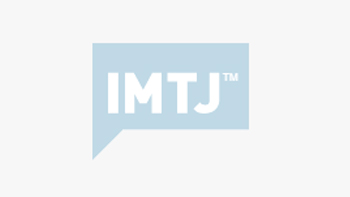Chiang Mai in Thailand will serve as a test bed for new ways of applying information and communication technology to make optimum use of local strengths. Chiang Mai is mapping out a future as a smarter city by using advanced technologies to help transform its tourism and agriculture industries and create other new drivers of creative economic growth. Linking patient databases and healthcare asset information could help it in medical tourism.
Chiang Mai in Thailand will serve as a test bed for new ways of applying information and communication technology to make optimum use of local strengths. Chiang Mai is mapping out a future as a smarter city by using advanced technologies to help transform its tourism and agriculture industries and create other new drivers of creative economic growth. Linking patient databases and healthcare asset information could help it in medical tourism.
Many companies have attempted to market systems and software that they claim is designed to help hospitals and others attract and deal with medical tourism more efficiently. Many of these have disappeared as fast as they appeared, being too complex and too expensive for what they actually offered. But there is still a huge problem in medical tourism of how to deal efficiently with enquiries and patients for something that by its very nature crosses national boundaries with non-communicating technologies.
Rather than use software or other technology that is the equivalent of dealing with a medical problem by sticking plasters, a longer-term approach is to offer a wider technological solution of which medical tourism is but a part.
The use of technology to build a strong medical tourism sector is part of the Smart City programme supported by global group IBM. IBM defines a Smart City in terms of the improvements in quality of life and economic well-being that can be achieved by applying information technologies to planning, designing, building, and operating urban infrastructure. IBM is awarding $50 million worth of technology and services to 100 municipalities worldwide over the next three years. Chiang Mai is receiving $400,000 to bring in global experts to advise on new approaches.
Chiang Mai relies heavily on tourism. The government, local universities and the private sector have been trying to improve local economic potential through the Chiang Mai Creative City campaign. The local creative city development committee believes that improving technological capability is one of the aspects of promoting a creative economy, with the goal of making Chiang Mai an attractive city for foreign investment, living, travelling, studying and working.
The committee is working with IBM to help develop a roadmap for a Smarter City. It envisions using smart technology to expand the traditional tourism industry with a strong focus on medical tourism. David Hathaway of IBM says, “Healthcare providers can use real-time location tracking of patients and hospital assets to increase efficiency and build an internationally recognised service identity.” Electronic medical record technology can be adopted to standardise information exchanges to link all medical service providers including traditional medicine and spas.
Chiang Mai, the largest city in Northern Thailand, already gets some long stay healthcare visitors, mostly Japanese. Quality services at low prices are also a major selling point in mainstream healthcare, dental and ophthalmologic care and Thai traditional medicine. The local university is building a centre of medical excellence including robotic surgery and geriatric medicine to accommodate the ageing society of the future.
Cities are home to more than half the world’s population, and wield more economic power, greater political influence and more advanced technological capabilities than ever before. Simultaneously, cities are struggling with a wide range of financial and service delivery challenges, in areas as diverse as transportation, energy, clean water, education, social services, public safety and economic development. Launched in 2010, the Smarter Cities Challenge is a competitive grant programme from IBM awarding $50 million worth of technology and services over the next 3 years to 100 cities around the globe. These grants are designed to address the wide range of financial and infrastructure challenges facing cities today. When selecting the 2011 Smarter Cities Challenge grant recipients, several key criteria were considered. The cities had to be prepared to match IBM’s investment with their own commitment of time and resources. Proposals articulating pressing urban concerns that could be addressed by implementing smarter technologies and processes rose to the top of the list. Cities that demonstrated a solid track record of innovative problem solving were also viewed favourably. The Board of Investment of Thailand is being asked to declare Chiang Mai a special economic zone with incentives for innovative businesses.








 ©2024 All rights reserved LaingBuisson
©2024 All rights reserved LaingBuisson 


